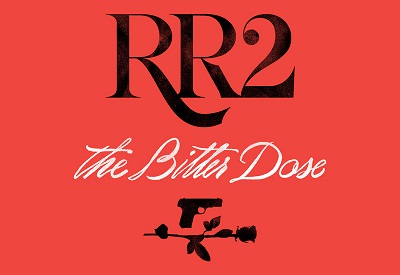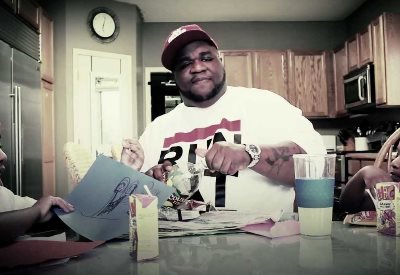by Rajin

8.5/10
I’ve said it before, but it needs to be stated at any given opportunity. Roc Marciano is the most influential underground rapper of this era. With 2010’s Marcberg, he created an entirely new style, which he later perfected on Reloaded. Since then, we have seen rappers popping up all over the underground, drawing inspiration from Roc, particularly over the last couple of years.
Around this time last year, Roc released Rosebudd’s Revenge, one of my favorite albums of 2017. It offered the streetwise lyrics, spoken-word delivery, and minimal, sample-heavy production that listeners have come to expect and love. Overall, he stuck to his guns; he stripped the production back further, but otherwise we got what we expected. Shortly afterwards Roc announced that there would be a sequel, subtitled The Bitter Dose, which was released late last month.
It seems like the story told over both Rosebudd’s Revenge records is a before/after story. The first was littered with tales of hustling, selling drugs, and pimping; the second comes off as Roc’s life after he’s attained the wealth and power he so desired. It feels like he’s rapping from the perspective of an incredibly successful hustler after retiring and buying himself an island, living in a massive villa with money, cocaine, and a different woman in every room.
While the first installment of this series was more or less predictable (which isn’t necessarily a bad thing), The Bitter Dose is anything but. Listening to it for the first time was a fun but very confusing experience. The production (courtesy of Arch Druids, Element, and Roc himself) is drastically different from anything we’ve heard on a Roc Marciano project thus far. It’s even more stripped back than normal, which actually adds to the luxurious feeling of the album. The tone is far less cold and gritty than that of Roc’s other projects, as well. Soul samples are still the driving force behind the production, but instead of creating the typical backing for grimy street tales, Roc and co. flipped the script and used them for a sound that felt almost tropical. It felt like a jazz/soul club at a hotel resort. The samples were adapted to create a vibe that was a lot sunnier and more celebratory than I’m accustomed to – even going back to the early ‘90s, I can’t think of another instance where they’ve been utilized like this.
Given the change in tone, there are fewer chances for Roc to write the vivid stories that he’s so good at. That’s not to say he doesn’t; “Power” essentially serves as this album’s “Pray For Me” and “Kill You” is as chilling as anything he’s penned. However, he takes this chance explore his wit as a writer differently. The character he plays here allows him to write braggadocious rhymes and luxurious punchlines on a level he hasn’t done so before. This is brag rap at its peak. There’s no other album on which “Bed Spring King,” a hysterical and ridiculous yet still catchy track, could exist and still make sense to its overall narrative.
Like usual, Roc opts to keep the guest appearances to a minimum. We see longtime collaborator and friend Knowledge the Pirate, whose contributions just fuel the desire for a solo album, and Action Bronson, who drops a fairly hilarious verse. Overall, Roc’s rapping stays true to his signature style. Surprisingly, there are actually a few moments where he tries new flows out. For instance, the way he rides the beat on “The Sauce” is entirely unlike any flow he’s used thus far. While he is normally laid-back, on this track, Roc picks up the pace a bit to match the frenetic energy of the production. It’s interesting to see him adapt his style to rap a bit differently than we’re used to hearing.
If there was anything to criticize about this album, it would have to be regarding the production at some points. There are a few songs that really just consist of a 4-bar loop with nothing else going into them. Sometimes doing that works, but of course it makes the beats too repetitive at other points, such as on “Bohemian Grove.” In addition, Roc’s albums tend to have a few stellar, standout tracks each, and this album didn’t really have anything like that. To be fair, though, there were no unnecessary tracks here either, unlike his previous albums, which have a bit of filler on each. As such, in a lot of ways this is his tightest and most consistent album thus far.
This album displays Roc Marciano at his most ambitious. While it still doesn’t quite match Reloaded, arguably is magnum opus, it is without a doubt his most innovative work since Marcberg. He stuck to his strengths while doing a great job at finding a new approach to his style, now that a huge portion of the underground scene has been built around it. For that reason, it’s an exciting listen, and it’s another great entry in Roc’s already impressive catalog.




